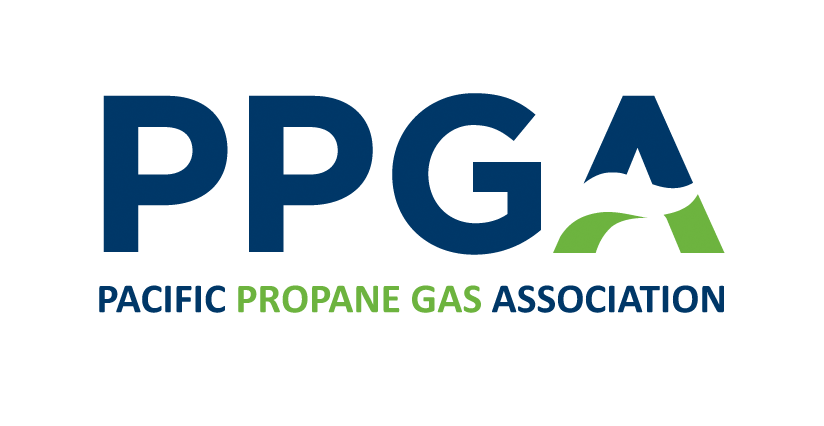Pacific Northwest Runs on Propane
Propane costs significantly less in fuel, fluids and filters. Propane engines last longer due to its minimal carbon buildup and therefore no expensive exhaust systems are needed. Plus, propane engines perform equal to traditional gasoline and diesel engines.
The Pacific Propane Industry is offering $1,500 rebates for the purchase of a new propane vehicle or propane conversion.
“Propane is a well-established fuel and is domestically produced. Using propane as a vehicle fuel increases energy security, can provide the convenience of on-site fueling economically, and reduces air pollution and the environmental impacts of vehicles.”
Pacific Propane Gas Association Offers Autogas Incentives in Hawaii, Oregon and Washington
The Pacific Propane Gas Association (PPGA) is offering propane customers who reside in AK, HI, OR and WA $1,500 incentive for a newly purchased propane vehicle or propane conversion of an existing vehicle. The Incentive is also open to propane companies and their employee. $5,000 is available for propane powered bobtails.
Other federal incentives are available to those in Alaska, Hawaii, Oregon and Washington.
Vehicle qualifications include:
- Any vehicle or retrofit system [U.S. EPA and/or California. Air Resources Board (CARB) approved).
- Vehicle registered and operated in AK, WA, OR or HI.
- All propane-powered bobtails are eligible for $5,000 incentive payment.
Funding qualifications include:
- Vehicles must be purchased in 2025.
- All retrofit work must be completed within 2025, as the program closes Dec. 31, 2025.
- Before receiving an PPGA Autogas rebate, all federal and state incentives must be applied, and funds may be used for incremental cost of propane vehicle vs. gasoline or diesel vehicle only.
- A completed initial survey and final survey required for each vehicle.
- Submit anecdotal performance review electronically within a year from time of receiving rebate.
- 50% of funds will be paid after initial survey completed, 50% of funds paid after final survey completed.
- Data collected used to help propane industry and vehicle manufacturer with data to evaluate performance on propane vs. gasoline, make improvements and evaluate propane as an alternative motor fuel.
- Vehicle Information.
- Applicant information.
- Propane Marketer information.
- Attach invoice for new propane vehicle or propane retrofit system.
Return completed application in 1 of 3 ways:
- Email to: ppga@kdafirm.com
- Mail to: Pacific Propane Gas Association
629 W. Hillsdale St.Lansing, MI 48933
Questions? Contact the Rebate Team: (425) 250-9029
CLOSED
CLOSED
Includes propane vehicles. Eligible diesel vehicles, engines and equipment include: School buses, Class 5 – Class 8 heavy-duty highway vehicles, Locomotive engines, Marine engines, Non-road engines, equipment or vehicles used in construction, handling of cargo (including at ports or airports), agriculture, mining or energy production (including stationary generators and pumps).
CONTACT:
DERA Helpline
dera@epa.gov
877-623-2322
National Tax Credit Information
If you’re installing propane fueling infrastructure between January 1, 2023, and December 31, 2032, you may qualify for the Alternative Fuel Vehicle Refueling Property Credit. Businesses can receive:
- 6% of installation costs (up to $100,000), or
- 30% of installation costs (up to $100,000) if labor and apprenticeship rules are met.
This credit applies to fuel dispensers and essential parts like installation labor. Tax-exempt entities, including state and local governments, may also qualify for the same credit.
For residential installations, consumers can claim a credit of up to 30% of the cost (up to $1,000) for propane fueling equipment installed at their homes.
To qualify, fueling equipment must be installed in a low-income or rural area. Check if your location qualifies using the 30C Tax Credit Eligibility Locator.
For more information, see IRS Form 8911.
Certain uses of propane in vehicles are exempt from federal fuel taxes. If propane is used in any of the following ways, it may qualify for an exemption:
- On farms for agricultural purposes
- In specific intercity or local buses
- In school buses
- Exclusively by non-profit educational organizations
- Exclusively by state or local governments
Note that tax-exempt entities that don’t pay excise taxes on transportation fuel are not eligible. For further information, refer to IRS Publication 510.
Washington Propane Autogas Fueling Stations
Oregon Propane Autogas Fueling Stations
FAST ROI WITH THESE PROPANE FLEETS
Class 4 & Under
Passenger Vehicles:
- Police & EMT Vehicles
- Pickup Trucks
- Passenger Vans & Buses
Light-Duty Fleet Vehicles:
- Box Trucks
- Delivery Vans
Class 5
- Ford’s F-550, Chevy, Etc.
- Walk-ins and delivery trucks
- Bucket trucks or cherry pickers
Class 6
- Single-axle
- Beverage trucks
- Rack trucks
- School buses
Class 7
- Street sweepers
- Garbage trucks
- City transit buses
- Furniture trucks and
smaller semis
- Domestic
- Lower Fuel Costs
- Short Return on Investment
- High Octane Rating Allows For Improved Engine Life
- Fewer Cold-Start Issues
- Lower Emissions Than Traditional Gas and Diesel Engines


